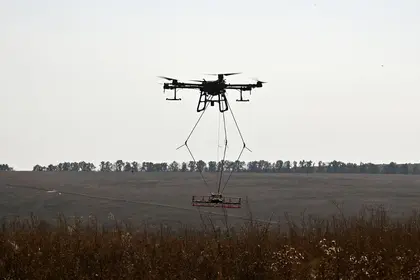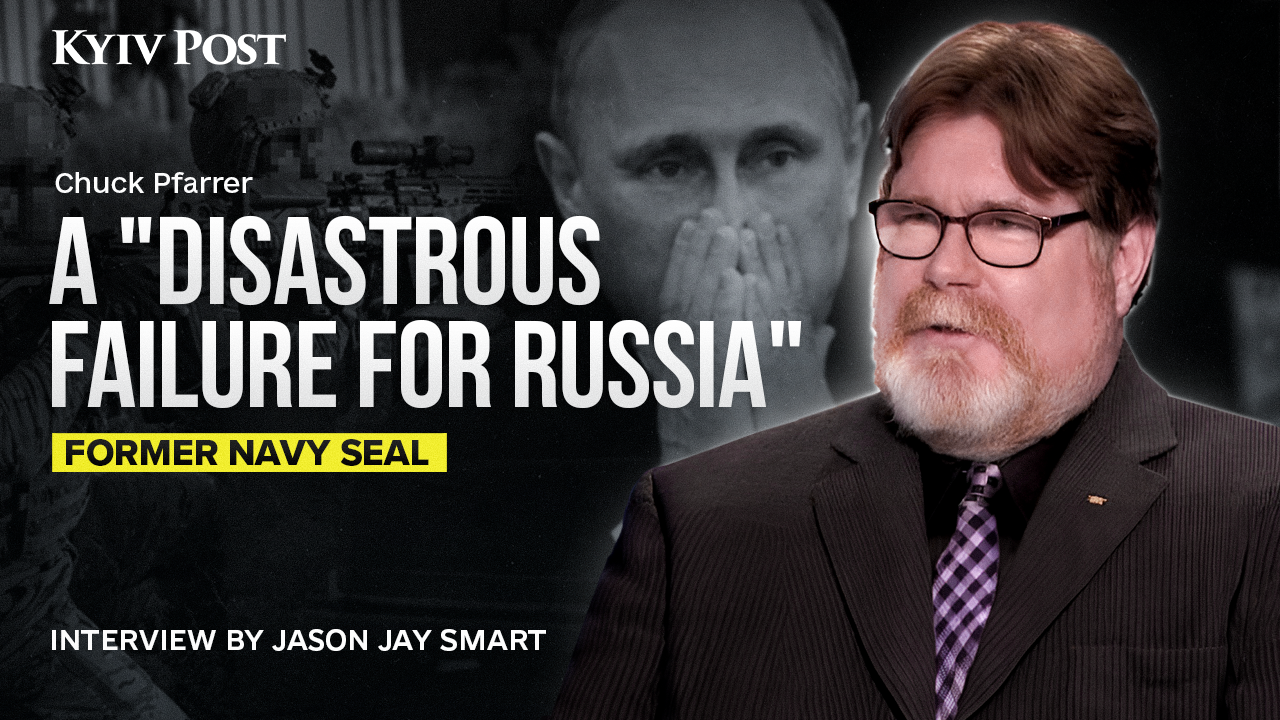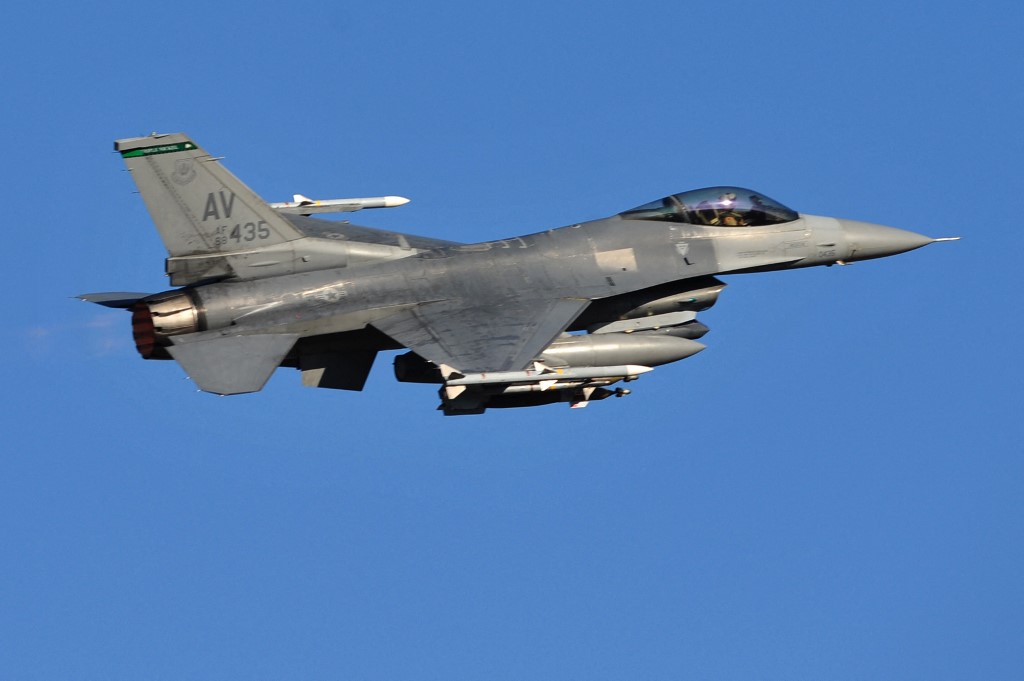In an interview with Agence France Presse (AFP) on Monday, Ukraine’s security council chief said that the administration “sees no risk of an imminent ground assault on the northeastern city of Kharkiv,” despite Russia’s mounting offensive in the border areas by the northeastern city that began on Friday, May 10.
“At the moment, Russian actions in the border [sector] are ongoing,” Oleksandr Lytvynenko, the recently appointed secretary of Ukraine’s security council, told AFP in an interview in Kyiv.
JOIN US ON TELEGRAM
Follow our coverage of the war on the @Kyivpost_official.
“We can say that we don’t see any threat of assault on the city of Kharkiv,” he said.
“But there are a lot of Russians, quite a lot. About 50,000 were on the border,” Lytvynenko added. More than 30,000 of Moscow’s troops were involved in the current northeastern invasion, he estimated.
Near the start of Russia’s February 2022 full-scale invasion of the sovereign country, the Kremlin’s forces fought to capture Ukraine’s second-largest city. Still, they were repelled from the region that autumn.
Any renewed Russian assault on Kharkiv would inflict “enormous damage” to Ukraine’s economy, Lytvynenko admitted and would displace more than a million inhabitants. Instead, the security chief said, he believed this was an attempt to create a buffer zone along the region’s borders to limit Ukrainian attacks into Russia. Intensified mining operations have been reported there on the Russian Army’s part.

EU Transfers €1.5 Bln Raised From Russian Assets for Ukraine
Kharkiv is the nearest major Ukrainian city to Russia’s Belgorod, which has been a frequent target of Ukrainian attacks this year.
Lytvynenko acknowledged to the AFP interviewer that Kyiv had been striking inside Russian territory, but insisted it was only against military targets, and against oil facilities used to fuel the invasion.
"Reports of the Central Committee and the Minister of Defense regarding the situation in all directions, where it is the most hot right now. Kharkiv Oblast - our counterattack actions continue, the direction has been strengthened, in particular Vovchansk and border regions in… pic.twitter.com/F0Ku6qGHfY
— Global Monitor (@monitor3444) May 13, 2024
Massive explosion after Russian kamikaze drone strikes a Ukrainian BM-21 multiple rocket launcher (MLRS) in Kharkiv oblast pic.twitter.com/tucdE8Yysx
— LogKa (@LogKa11) May 13, 2024
White House says promised weapons will be arriving in Ukraine this week
US National Security Adviser Jake Sullivan announced on Monday at a regular press briefing that the military aid package promised to Ukraine on May 10 in Washington will arrive in Kyiv this week.
The White House official said that the US will deliver the aid “in the coming days because we’re trying to really accelerate the tempo of [weapons] deliveries, recognizing as I said before the delay has put Ukraine in a hole and we’re trying to help them to get out of this hole that as rapidly as possible,” Sullivan added.
After a six-month hold-up on Capitol Hill, and despite a Republican fringe group in the House of Representatives who were against any further defense of Ukraine against Russia’s invasion, the US Congress finally agreed upon a $61 billion package to send to Kyiv.
In the lost time, especially over the last week, Russian forces have sped up attacks on the border regions of Kharkiv, Sumy and Chernihiv, and have advanced westward from long-held positions in the Donetsk region.
We cannot allow Putin to invade another country with impunity—he would not stop at Ukraine. Continuing to defend the cause of freedom helps keep us and our allies safe from future military ambitions of authoritarians around the world. pic.twitter.com/ByEqDHpCjE
— Senator Mitt Romney (@SenatorRomney) May 13, 2024
🇺🇸The U.S. will allocate a new aid package to #Ukraine in the next few days, #WhiteHouse adviser Jake #Sullivan said during a briefing. pic.twitter.com/BQKohKXQLn
— KyivPost (@KyivPost) May 13, 2024
European Commission grants another year-long break on taxes on Ukrainian imports
The European Commission on Monday published a press release saying that it has approved the extension of Autonomous Trade Measures (ATMs) with Ukraine, meaning that the embattled country will not be subject to customs duties and quotas on Ukrainian exports to the EU for another year.
This forgiveness of taxes and quotas has been in place since June 2022, about three months after the Kremlin launched its full-scale invasion of Ukraine.
“These so-called Autonomous Trade Measures (ATMs)… are a key pillar of the EU’s unwavering support for Ukraine, providing a lifeline to the country’s economy through access to the EU market,” the release reads.
“The measures are also mindful of EU stakeholders’ concerns. To this end, considering a significant increase in imports of some agricultural products from Ukraine to the EU in 2022 and 2023, the renewed ATMs contain a reinforced safeguard mechanism. It allows for quick remedial action in case of significant disruptions to the EU market or the markets of one or more Member States.
“In addition, an emergency brake applies to eggs, poultry, sugar, oats, maize… and honey, which will be automatically triggered if import volumes reach the average yearly imports recorded between 1 July 2021 and 31 December 2023. Today, the Commission's Directorate-General for Trade has also published those import volumes.”
“The Russians just walked in,” Ukrainian commander tells BBC about Kharkiv defenses
In a recent interview with the BBC, the commander of a Ukrainian Special Reconnaissance unit, Denys Yaroslavskyi, said that there were no defenses along Ukraine’s northeastern border with Russia, no minefields and that the Russian forces just “walked in.”
He called it “a betrayal.”
“[Yaroslavskyi] fought in Ukraine’s surprise offensive in Kharkiv in the autumn of 2022, which pushed back an initial Russian invasion back to the border,” the feature article reads, and then said that his forces are now having to repeat the same.
Yaroslavsyi claimed that the latest advances by the border are only a few miles deep “but have swallowed up around 100 [square] kilometers of Ukrainian territory,” in contrast to more heavily defended areas in the East of Ukraine, where it has taken Russia several months to achieve the same effect.
“There was no first line of defense,” he told the BBC. “We saw it. The Russians just walked in. They just walked in, without any minefields,” he said. “Either it was an act of negligence or corruption. It wasn’t a failure. It was a betrayal,” he said.
You can also highlight the text and press Ctrl + Enter









